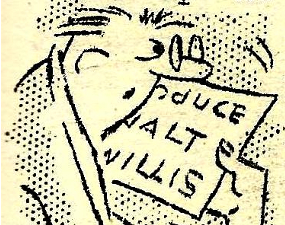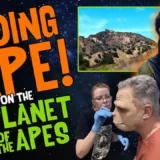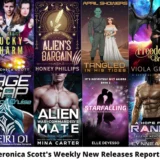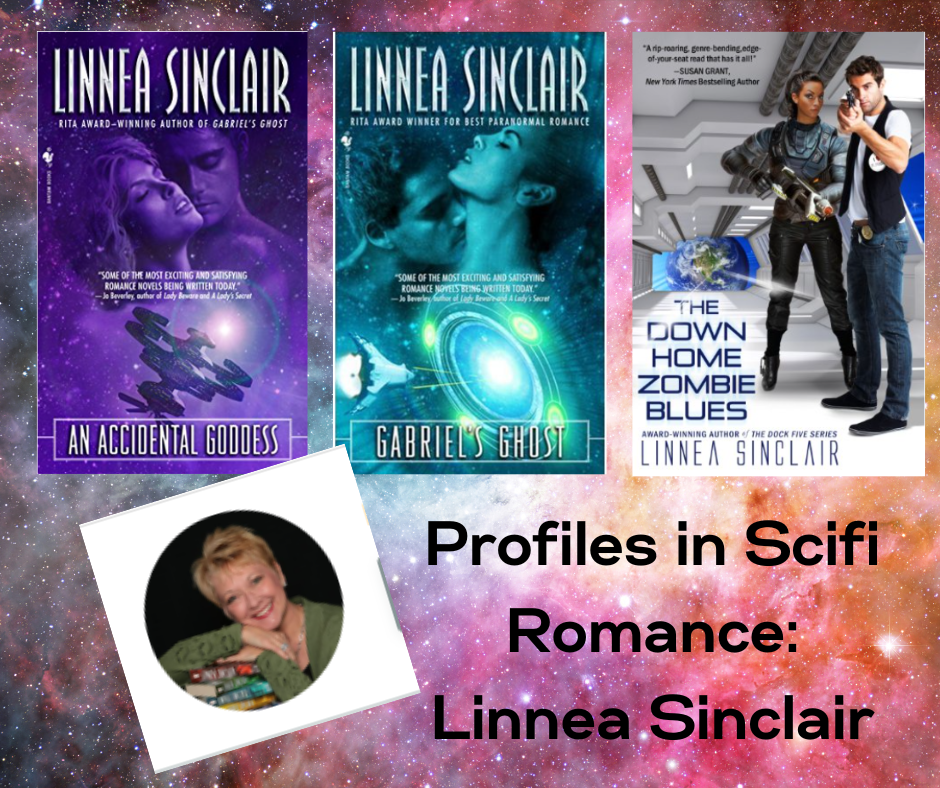 Veronica Scott for AMAZING STORIES: Welcome to my periodic series of author profiles. Today I’ve chosen one of the true pioneers and early trailblazers in the genre, Linnea Sinclair. Many people still mention her Accidental Goddess as their first SFR read and she shares a few details about the inspiration for the novel, as well as what she’s up to nowadays, teaching author craft classes. I used to enjoy time spent catching up with Ms. Sinclair at the various romance conventions of bygone days and I even had one of my short stories edited by her for an anthology she was putting together.
Veronica Scott for AMAZING STORIES: Welcome to my periodic series of author profiles. Today I’ve chosen one of the true pioneers and early trailblazers in the genre, Linnea Sinclair. Many people still mention her Accidental Goddess as their first SFR read and she shares a few details about the inspiration for the novel, as well as what she’s up to nowadays, teaching author craft classes. I used to enjoy time spent catching up with Ms. Sinclair at the various romance conventions of bygone days and I even had one of my short stories edited by her for an anthology she was putting together.
VS for ASM.: What was the first science fiction (or scifi romance) book you ever read and what did you like about it?
LS: Good question. Being that I’m approaching 70 years old, and I’ve been reading since I was four… My best guess is it was probably a fantasy/fairy tale book, not a science fiction one because back in the 1950s, there weren’t many children’s SF books around (to my knowledge). Most of my childhood favorite books had magical-type stories. My addiction to the ‘impossible as possible’ probably started there.
But for science fiction itself, that probably started through television. I was devoted to SPACE PATROL/PLANET PATROL and the THUNDERBIRDS (kids’ SF show using marionettes), all broadcast during the late 1950s and into the 1960s. Then, of course, there was TIME TUNNEL, LOST IN SPACE and then STAR TREK.
What I liked about these stories was the strong female main characters (“strong” for that era) and, as well, the Good Conquers Evil theme. I liked the problem solving. I’d been reading Sherlock Holmes short stories since I was, oh, five or six years old. I loved problem solving stories. I still do.
ASM.: Since many people have mentioned this book as a major influence in inspiring them when it comes to reading or writing scifi romance: What was the story spark or inspiration for Accidental Goddess?
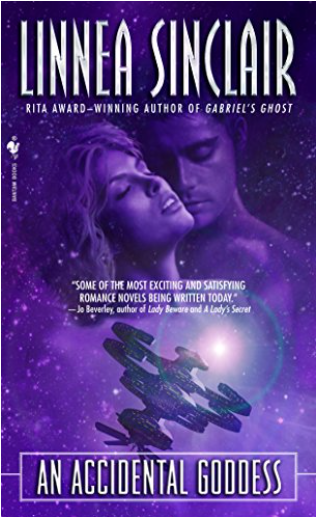 LS: The impetus for An Accidental Goddess was my sword-and-sorcery story Wintertide, one of the first books I wrote professionally (as an adult—my crayon offering at age four doesn’t count). I wrote the first drafts of Wintertide on a typewriter back in the early 1980s. Yes, a pound-on-the-keys-hit-carriage-return typewriter. Why didn’t I start out writing SF, you ask? Good question. Honestly, because I didn’t feel smart enough. Sucky reason, yes? I also hadn’t read (couldn’t find) a lot of female SF authors back then. I felt “safe” writing fantasy.
LS: The impetus for An Accidental Goddess was my sword-and-sorcery story Wintertide, one of the first books I wrote professionally (as an adult—my crayon offering at age four doesn’t count). I wrote the first drafts of Wintertide on a typewriter back in the early 1980s. Yes, a pound-on-the-keys-hit-carriage-return typewriter. Why didn’t I start out writing SF, you ask? Good question. Honestly, because I didn’t feel smart enough. Sucky reason, yes? I also hadn’t read (couldn’t find) a lot of female SF authors back then. I felt “safe” writing fantasy.
When the Internet started to blossom (Compuserve and AOL, anyone?) I realized that, yes, there WERE SF stories crafted by women. I dove in.
Goddess, like many of my stories, deals with a main character who finds herself between a rock-and-a-hard place that she’s unprepared to deal with. It could have been written (any of my stories could have been written) without the romance element. But, hey, why pass up a chance to REALLY torture my main character emotionally? Yunno, anyone could fight off an evil sorcerer on a space station using both magic and technology. But why miss the chance to also torture my main character emotionally by juxtaposing what she MUST do—stop the bad guy—up against the reality that by stopping the bad guy SHE ALSO RISKS losing someone she deeply loves? Woo-hoo! She’s also fully out of her element and has no one else to help her (well, except Simon… but he’s often more of a hindrance than a help). I love writing to literary agent Donald Maass’ s excellent advice: Make it worse, make it worse, make it worse. So the history of who and what my female MC, Gillaine, actually was (which is set up in the fantasy, Wintertide) also comes to play in a very uncomfortable manner. Gillie can’t change who or what she is. That really makes things worse, doesn’t it?
Note to all: I’m honestly a nice person in real life. Just don’t mess with me on the pages of a story…
ASM.: Do you have a favorite scene in the book?
LS: My favorite scenes in most of my stories are always the ones where the main character has to step from the frying pan into the fire. Most often it’s a belly-flop more than a step. With Gillie in Goddess, it’s first where she has to reveal to Mack and his crew one of the key things she didn’t want to reveal: who she is (militarily) (Chapter 24, if you want to look it up). Again, to quote Maass: What is the one thing your MC never wants to do? Make him do it. And then, in Chapter 28, where she has to become the actual “goddess” she is: “Tal tay Raheira!”
I love any time my characters have to put it all on the line, go for broke.
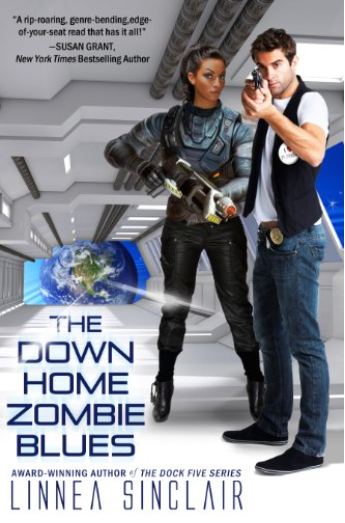 It’s also why, in real life, I have a deep admiration for cops, firefighters and any first responders. (Hence the main character of Detective Theo Petrakos in my The Down Home Zombie Blues.)
It’s also why, in real life, I have a deep admiration for cops, firefighters and any first responders. (Hence the main character of Detective Theo Petrakos in my The Down Home Zombie Blues.)
ASM.: I know you’ve been concentrating on other things for the past few years. Do you foresee yourself tackling another book at some point? In the SFR genre or another one perhaps?
LS: Yes, I’d love to start writing stories again. I need to get life and my increasingly arthritic fingers to cooperate. (My thumbs are now pointing in directions thumbs aren’t supposed to.) I do have a three-quarters finished SFR manuscript that I’ve been working on for over five years and a follow-on novel in my Dock Five series. Maybe if I soak my fingers in Bio-Freeze for an hour or so I could get at it. I also have to get my brain to cooperate, and moving to a new house five times in the past eight years has not helped. (I make the joke that my hubby keeps moving, but I keep finding him…)
But, yes, I’ve not completely thrown in the intergalactic towel yet. I’m still in orbit…
ASM.: Tell us a bit about your classes for authors. What led you to create the curriculum and how has it gone?
LS: I honestly love teaching the craft of writing fiction and of discovering and encouraging new talent. The bulk of my classes hit what I call The Basics: character, conflict, world-building (NOT just for SFF writers!) and key story components like crafting opening scenes and the basics of dialogue. When the Romantic Times magazine conventions were an annual occurrence (and one helluva grand time!), I taught individual workshops and, as well, organized and taught their three-day pre-convention Writers Boot Camp for over a decade (along with several other fantastic authors and literary agents).
I was amazed at the large amount of fantastic untapped talent out there at the annual writers’ boot camps. There were many attendees with more than enough talent to hit the big time but were stopped because of 1) fear/lack of faith in themselves and 2) no earthly clue on how to prepare and submit a manuscript for publication. I was also challenged by the number (not as large) of adults who had great ideas for stories but couldn’t spell or put together a coherent sentence. But all wanted to learn, and if you want to learn, I’m willing to teach.
My online classes (most are month-long) range from basic story structure (what is a plot, what is a main character) to the more complicated use of internal conflict or the pacing of high-action scenes.
ASM.: What would you say is a key fundamental craft issue for an author and how do your workshops help to tackle the challenge?
LS: Depends on the author but the most common issue I’ve seen in almost twenty years of teaching is the lack of understanding 1) conflict and 2) how to use conflict in a plot. I credit author Jacqueline Lichtenberg with teaching me the deeper key components of conflict. Succinctly: “Conflict is the essence of story.” I know that sounds simplistic but it’s not. Humans naturally shy from conflict. If you want to write great fiction, you need to slug back a few Pina Coladas, put your evil on, and steep your main character in real, gripping, what-the-hell-do-we-do-now conflict. As writing guru Dwight Swain said: It’s the author’s job to manipulate the emotions of the reader.
Conflict (in a plot) is the one sure-fire way to manipulate your reader’s emotions.
So, most classes I teach touch in some manner on the proper deployment of conflict in the story. I hand out free (cyber) Pina Coladas in all my online classes so students can get their evil on with ease.
ASM.: The classes seem to have quite an emphasis on the characters and their motivations. Can you share a bit more about ‘torturing’ the characters leads to a successful book?
LS: With motivations, you have to ask WHY. WHY does Dorothy have to escape from the land of Oz? What’s at risk, what’s at stake if she DOESN’T? WHY does Luke have to become a Jedi, why stop Darth Vader? What’s at risk is he DOESN’T?
Why does your Hero/Heroine have to _________? What’s at stake, what does s/he stand to LOSE unequivocally if s/he DOESN’T?
The stakes have to be real, tangible, serious, non-negotiable. If another solution can be substituted, your stakes are weak. And then your story is weak.
Author Holly Lisle has some wonderful how-to articles that address this issue on her site. I recommend her often to my students. https://hollylisle.com/articles/ Yes, I teach writing, but I also learn from others. Holly is one such other and she’s excellent. I also recommend the books by Lisa Cron on neuro-science and crafting fiction (yes, there’s a definite connection!). If you download Holly’s advice (I’ve never taken her classes, but I suspect they’re great) and read Cron’s books (and underline key passages in bright colors like I do), then come sign up for my classes and we’ll refine what you’ve studied as we play with it in real time. A writer learns by writing. You have to take good advice and then put fingers to keyboard and deploy that same advice.
You can always hit delete if you don’t like what you wrote. But you have to try it first.
ASM.: Any lessons learned for you as the instructor? Anything that surprises you during a workshop?
LS: I don’t think there are any major surprises (yet) in my workshops but, yes, I learn tons from my students. I watch their struggles with crafting and in order to help them, I have to get into WHY they’re struggling. Most often, it’s fear of conflict (they don’t like experiencing the feelings of conflict) but other things like characterization or plot crop up. And I have to think of a helpful way (and example) to address that for THEIR story. Every story writes differently. Yes, craft concepts don’t change but how one deploys a concept can vary. My internal conflict class came out of that very scenario. I’d taught basic conflict—GMC, per noted author Deb Dixon—for years. Time and again, a student or three would comment on a conflict-craft issue and, time and again, it was clearly an INTERNAL conflict issue. So, I asked myself: Self, what’s the problem we need to address? And the answer was to teach a class solely on crafting internal conflict. Which I now do. It’s killer, because it needs to be. It’s all emotional-brain science-personality stuff. All stuff that, in real life, we avoid because it’s uncomfortable. In order to rip your reader’s heart out, you have to rip your main character’s heart out and, in order to do that, you have to clearly know what it feels like to have your own heart ripped out. Mercilessly. The better writer sucks it up and faces what that feels like, and then painfully plants that on the page.
ASM.: Are there any craft books you’ve found to be particularly helpful? Or are you more a seat-of-the-pants style writer?
LS: I’m a pantser, through and through. That being said, I recommend the craft books by Lisa Cron, Deb Dixon, Jack Bickham, Donald Maass, James Scott Bell and Dwight V Swain. These would be for overall crafting fiction (of any genre). As noted, I’m definitely a pantser and not a plotter, but craft books address more than just plot structure. My critique partner, S.A. Barnes (she writes SF Horror for Tor) aka Stacey Kade (she writes YA and NA for Simon & Schuster and Disney Hyperion), loves the how-to books by screenwriter Christopher Vogler, specifically The Writer’s Journey, which was inspired by Joseph Campbell’s mythic structure. I “get” Vogler but his methods don’t speak to me as deeply as Swain and Bickham.
So, point: Not all craft books work equally for all writers. Every craft how-to is worth considering or, as I state in my classes, adding to your writerly toolbox. But not every craft tip works 100% of the time for everyone.
ASM.: If you had one tip for a writer, what would it be?
LS: Write. To quote La Nora (Nora Roberts): You can’t edit a blank page.
ASM.: Pithy and oh-so-true! What do you wish you’d known when you started your writing career? Did you have mentors or other authors who inspired you along the way?
LS: I’ll answer in reverse. Yes, I had wonderful mentors/authors who helped me and I’m eternally grateful to Jacqueline Lichtenberg, Nancy Gramm, Dee Lloyd, Susan Grant, Pat Simmons, Robin D Owens, Catherine Asaro, Monette Michaels, Mary Jo Putney, Jo Beverley, Nalini Singh, all the crazy and beloved authors who populated my annual Intergalactic Bar and Grille parties at the Romantic Times conventions for more than a decade… and, of course, my trusty crit partner, Stacey Kade aka S.A. Barnes.
I’m not sure there was anything I wish I’d known (in the sense of a warning). I can tell you I was surprised, having formerly been a reporter in the competitive hard-news arena, at the unequivocal support and advice so willingly and kindly offered to me early in my career by really big-name authors. I mean, when literary stars like Mary Jo Putney or Barbara Hambly ask a newbie author (like I was back then) to lunch, just out of the blue… it makes one gob-smacked. (Ah! Reminds me to add Lynne Connolly to the list above—if nothing else, she taught me to say “gob-smacked.”)
ASM.: As a reader, what makes a “good book experience” for you?
LS: Characters with depth and quirks. A “prize” (story goal) worth fighting for. I’m a sucker for well-crafted, pithy dialogue. And I do love me some snark.
ASM.: Fun Question: If you were invited to be a guest star on a major scifi franchise (movie or TV), which one would you pick and what character would you design for yourself to play?
LS: I’d like to be Han Solo’s co-pilot on the Millennium Falcon. And I think I’d have been a much better captain of the Enterprise than Janeway. Or maybe Security Chief on a starship (because I do have the appropriate background for that, being a former private detective). But be that as it may, I’ve pretty much gotten to do those kinds of things through writing my stories. And I did all of those kinds of things while still in my pajamas and Hello Kitty slippers.
ASM.: What’s next for you?
LS: Well, it’s Thursday (as I type this) so that means my hubby and I are going out to dinner at The Oar House as usual… oh, that’s not what you’re asking?
I’m teaching a class in April on Internal Conflict in fiction, then classes on Word Choice and Pitches & Blurbs in August and September.
ASM.: Where you can be found on social media.
LS: I’m not a fan of social media anymore. Sorry. Facebook is the only place I have an ‘author’ presence, and that’s only because I’ve been on FB a long time and also because I know I have to have something somewhere. https://www.facebook.com/people/Linnea-Sinclair/100063591436317/
But I don’t hang out on FB. If a reader wants to ask me something, good heavens, drop me an email (and give me a few days to answer, because we just moved north to Pensacola FL late December and we’re still organizing, reorganizing and waiting on home repair people, etc..).
AN ACCIDENTAL GODDESS: A NOVEL
Raheiran Special Forces captain Gillaine Davré has just woken up in some unknown space way station, wondering where the last three hundred years have gone. The last thing she remembers is her ship being attacked. Now it seems that while she was time-traveling, she was ordained a goddess. . . . Gillaine’s only hope of survival rests with dangerously seductive Admiral Mack Makarian, who suspects her of being a smuggler—or worse. But he can’t begin to imagine the full extent of it. For Gillaine is now Lady Kiasidira, holy icon to countless believers, including Mack—a man who inspires feelings in her that are far from saintly…feelings she knows are mutual. But when their flirtation is interrupted by a treacherous enemy from the past, Gillaine’s secret—and secret desires—could destroy them both….
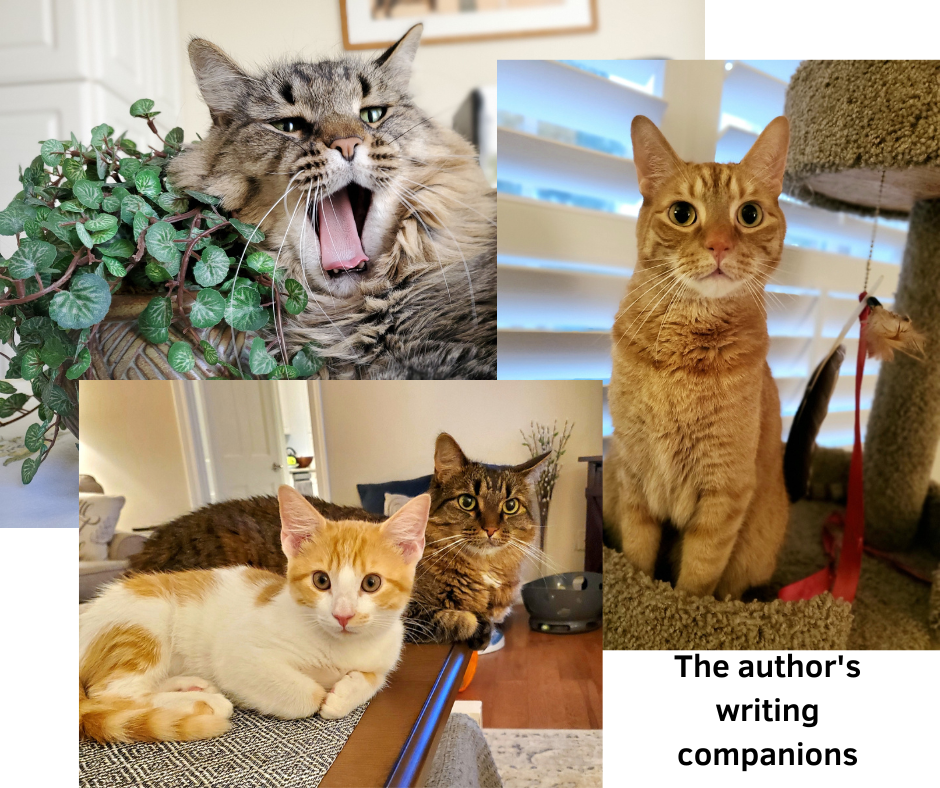
USA Today Best Selling Author
Veronica Scott grew up in a house with a library as its heart. Dad loved science fiction, Mom loved ancient history and Veronica thought there needed to be more romance in everything. When she ran out of books to read, she started writing her own stories.
Seven time winner of the SFR Galaxy Award, as well as a National Excellence in Romance Fiction Award, Veronica is also the proud recipient of a NASA Exceptional Service Medal relating to her former day job, not her romances!
She read the part of Star Trek Crew Member in the official audiobook production of Harlan Ellison’s “The City On the Edge of Forever.”



